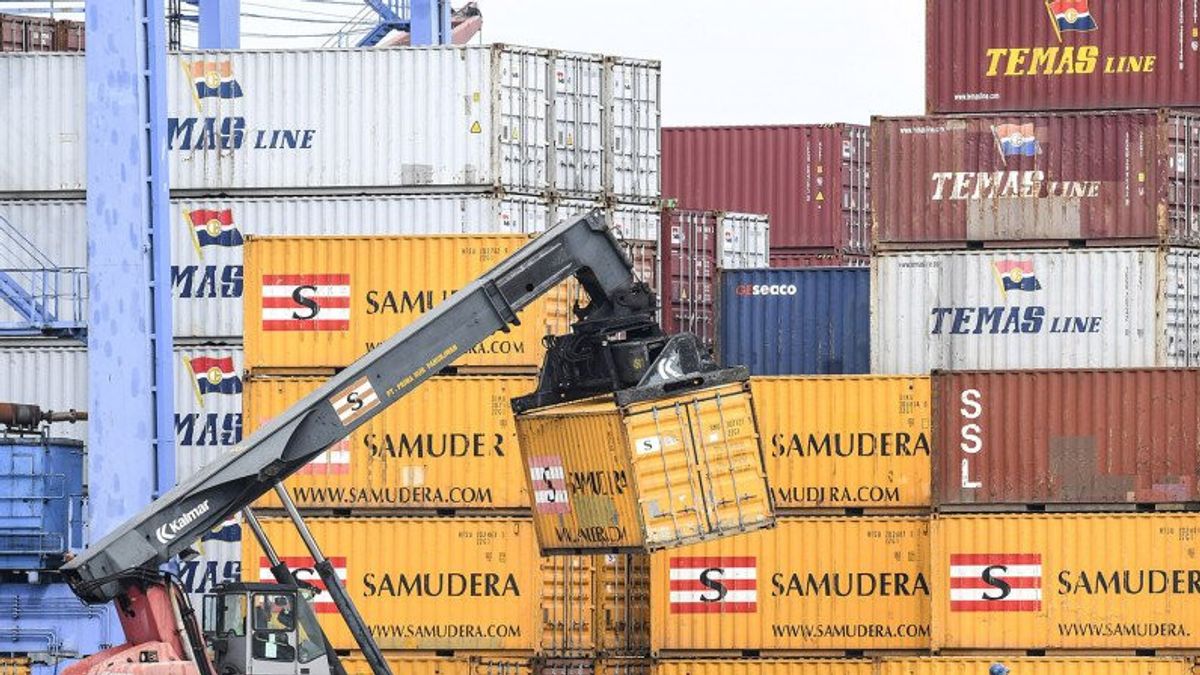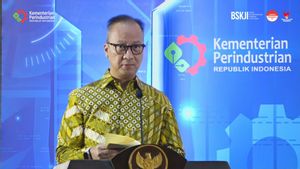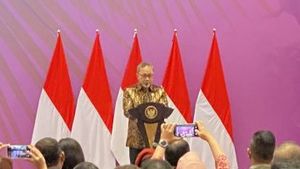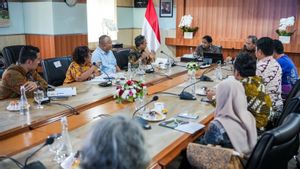JAKARTA - The Indonesian Center of Reorm on Economics (CORE) considers that Indonesia's slowdown in export growth is due to Indonesia's dependence on the Chinese export market.
Executive Director of CORE Indonesia Mohammad Faisal revealed that Indonesia's exports to China during 2024 were only 22.5 percent. This figure is much higher than Malaysia, Thailand, and the Philippines, which only ranges from 10 to 12 percent.
"When this export dependence is very high and at the same time China's export destination country is experiencing weakening demand, it will affect our export performance. That's why exports are running slowly," he said in a discussion on Economic Risk Mitigation ahead of the New Government, in Jakarta, Tuesday, July 23.
Faisal explained that Indonesia's weakening exports occurred in various mainstay export commodities, especially in manufacturing. For example, such as iron and steel, until the second quarter of 2024, growth continued to contract.
"Minus 26.9 percent, the only increase is exports of commodities, mineral fuels and CPOs. So the manufacturing thing that we should encourage is instead contracting," he explained.
On the other hand, Faisal said the weakening of demand in China occurred because there was oversupply. Especially in the manufacturing industry, where production has exceeded China's domestic needs.
SEE ALSO:
Because of this condition, continued Faisal, the Chinese government decided to export its manufacturing goods to various countries, including Indonesia.
Over supply which is then directed by China or exported outside to various countries, including Indonesia. So this is also one of the most crowded issues now if we pay attention, especially in the dense industry of textiles and textile products (TPT)," he explained.
Furthermore, Faisal said the impact of Indonesia's imports from China also increased, especially in the TPT sector. Where imports from China reached 35.5 percent in the second quarter of this year.
"Even though the exports are much lower than that, to China it is only 26 percent. The market share rather than imports from China in the Indonesian market is 41 percent for textile products and some fabrics are generally finished," he explained.
The English, Chinese, Japanese, Arabic, and French versions are automatically generated by the AI. So there may still be inaccuracies in translating, please always see Indonesian as our main language. (system supported by DigitalSiber.id)
















